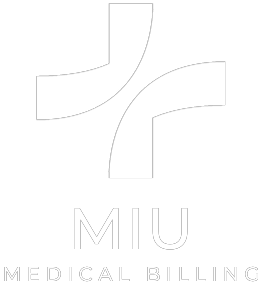Introduction
Ensuring smooth operations and uninterrupted patient care is paramount in the complex healthcare landscape. One critical aspect that underpins this objective is the efficient management of insurance credentialing services in Texas. As the state continues to evolve and healthcare regulations tighten, the need for optimized insurance credentialing services in Texas has become increasingly crucial. This article delves into the significance of these services, exploring best practices and strategies to streamline the credentialing process, mitigate risks, and ultimately enhance patient experiences and provider satisfaction.
Understanding Insurance Credentialing Services in Texas
Insurance credentialing services in Texas are pivotal in facilitating the enrollment and verification of healthcare providers with various insurance plans and networks. This process involves a comprehensive review of a provider’s qualifications, licenses, certifications, and professional background to ensure compliance with state and federal regulations, as well as the specific requirements of each insurance carrier. Effective insurance credentialing services in Texas are essential for providers to participate in insurance networks, enabling them to accept and bill for services covered by those plans.
Navigating Regulatory Complexities
The healthcare industry is subject to many regulations and guidelines, varying across different insurance carriers and state agencies. Insurance credentialing services in Texas must stay abreast of these ever-evolving requirements to ensure accurate and compliant credentialing processes. This includes monitoring changes in licensing requirements, continuing education mandates, and documentation standards, among other factors. By partnering with experienced and knowledgeable credentialing professionals, healthcare providers can confidently navigate these complexities, minimizing the risk of non-compliance and potential penalties.
Streamlining Credentialing Process For Providers
Efficient and streamlined insurance credentialing services in Texas are crucial for minimizing disruptions in patient care and revenue cycles. Delivery or errors in the credentialing process can prevent providers from joining insurance networks promptly, potentially leading to limited access to care for patients and financial strain for healthcare organizations. By leveraging advanced technology and implementing standardized procedures, credentialing services can optimize workflows, reduce administrative burdens, and ensure a seamless transition for providers joining new insurance networks.
Mitigating Credentialing Risks
The consequences of improper or incomplete credentialing can be severe, ranging from denied claims and reimbursement issues to potential legal liabilities. Insurance credentialing services in Texas play a vital role in mitigating these risks by thoroughly vetting providers’ credentials and ensuring compliance with all applicable regulations. Experienced credentialing professionals conduct thorough primary source verifications, cross-checking information from multiple sources to ensure accuracy and identify potential red flags or discrepancies.
Enhancing Data Security and Compliance
Handling sensitive provider data, such as personal information, licenses, and certifications, requires robust security protocols and strict adherence to data privacy regulations. Credentialing services in Texas must prioritize data security by implementing robust encryption methods, access controls, and secure data storage and transmission practices. Additionally, these services must stay up-to-date with evolving data privacy laws and regulations, such as the Health Insurance Portability and Accountability Act (HIPAA), to maintain compliance and protect the confidentiality of sensitive information.
Leveraging Technology for Efficient Credentialing
In the digital age, insurance credentialing services in Texas can leverage advanced technologies to streamline processes and enhance overall efficiency. Automated credentialing software solutions can simplify data collection, verification, and tracking, reducing manual efforts and minimizing errors. Online portals and cloud-based platforms can facilitate secure document sharing, enabling seamless collaboration between providers, credentialing services, and insurance carriers. Additionally, data analytics and reporting tools can provide valuable insights into credentialing trends, bottlenecks, and areas for improvement, enabling data-driven decision-making.
Ensuring Timely Re-credentialing
Credentialing is an ongoing process that requires periodic re-credentialing to ensure providers’ qualifications and credentials remain up-to-date. Insurance credentialing services in Texas are crucial in managing these re-credentialing cycles, ensuring that providers maintain their network participation and minimizing disruptions in patient care. Effective re-credentialing processes involve timely notifications, efficient document collection, and thorough verification to ensure continued compliance with insurance carrier requirements.
Improving Provider Satisfaction and Retention
Streamlined and efficient insurance credentialing services in Texas can significantly contribute to provider satisfaction and retention. By minimizing administrative burdens and ensuring a smooth credentialing experience, providers can focus on delivering high-quality patient care without unnecessary distractions or delays. Positive credentialing experiences can foster trust and confidence in the healthcare organization, enhancing provider loyalty and reducing costly turnover.
Building Collaborative Partnerships
Optimizing insurance credentialing services in Texas often involves building collaborative partnerships with various stakeholders, including healthcare providers and credentialing organizations. These partnerships facilitate open communication, streamlined information sharing, and the establishment of consistent standards and best practices. By fostering collaborative, solid relationships, credentialing services can proactively address challenges, implement process improvements, and better serve the needs of both providers and insurance carriers.
Conclusion
In the ever-evolving healthcare landscape of Texas, optimizing insurance credentialing services in Texas is not just a necessity but a strategic imperative. By embracing best practices, leveraging technology, and fostering collaborative partnerships, healthcare organizations can ensure efficient and compliant credentialing processes and mitigate risks.




